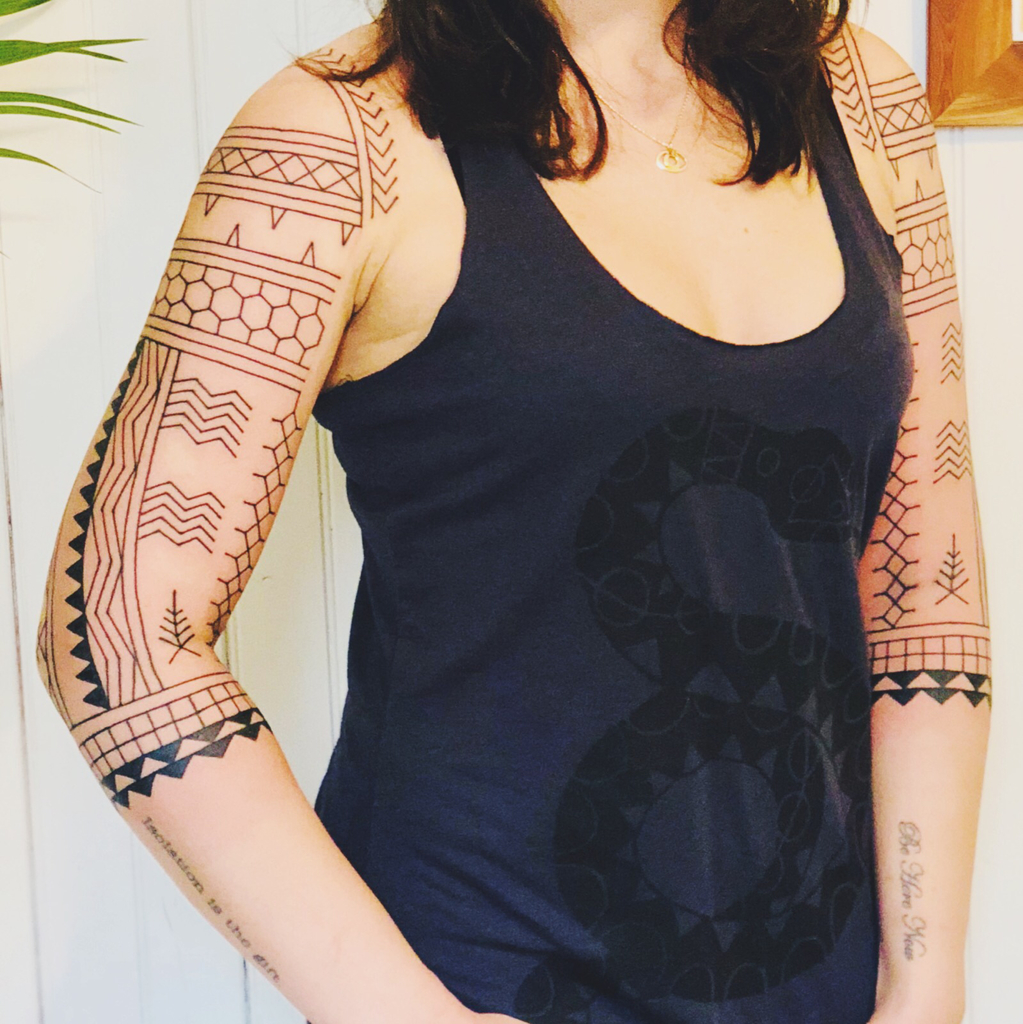Transformation

History
When Spanish colonists arrived in the Philippines in the 1500s, they called us “Pintados”, Painted Ones. Nearly 500 years later, our ancient art of tribal tattooing became nearly extinct. Thanks to the eighty plus year practice of Apo Whang-Od, the last Kalinga mambabatok, our tradition of tribal tattooing in the Philippines is still alive and is slowly resurging on a global scale.
Tattooing in the Philippines is often used to reflect bravery, beauty, character, and nature. It expresses the male/female warrior status within an egalitarian society and provides its wearers with honor and protection. Women typically receive their tattoos after their first menstruation to honor their spiritual connectivity, industry, and creative powers as bearers of life. It was believed that when all else is gone and you move into the afterlife, all that remains are your tattoos, and you need your tattoos to be guided back to your ancestors by your “controller” spirit.
Identity
For me, getting tattoos has been a symbol of my identity. Being a global nomad, I have the kind of face and demeanor that can fit into many cultures. While that’s typically beneficial, the recent presidential election in the United State paired with a rise of racists ideologies around the world grew a fire inside of me that had always been there, but I never really had a chance to tap into. It was the blaze of my Filipina heritage, culture, matriarchy, and pride.
I had a very intense longing to express my way of thinking outward, and to show people that “yes, I do have a certain mindset and stance, I do belong somewhere, and I am not invisible”. My belongingness has lasted for thousands of years, and connectedness is broader than what we can see, touch, hear, or smell. It’s something that we feel within ourselves, in each other, and through our rich history together on this planet.
For years I’ve known I wanted to get tattoos inspired by my ancestors and modernized to myself. I didn’t want to disrespect indigenous people who still live and work actively in the rice patties of Northern Luzon, or Aeta tribes that live in my Subic/Zambales/Olongapo birthplace on the West Coast. For this reason, I began to cancel out very traditional, inflexible patterns and practices for myself.
Process.
Instead, I found Victor - an amazingly talented artist, kind person, and beautiful soul. Victor spent a large portion of his life in New Zealand and around Māori tribes. He really understands the significance of these tattooing rituals and has practiced Polynesian, Melanesian, and Micronesian body art more than anyone else I know. For this reason, I put my full trust into his work and exchange of energy.
We had a long conversation about the importance of decolonization, lineage, birth, and rebirth, and the ongoing need for change while keeping what’s good. With this context, Victor was able to blend my Aeta and Kalinga backgrounds with my own personal journey to create one stunning, hypnotizing piece.
During our first session, we spent 10 hours together. Victor drew freehand style guides then got the gun. We ate Thai curry, David and the Easter River Tattoo crew were emotional and physical supporters, and a New Zealand camera crew filmed our day. With all the fun, laughter, and excitement, our environment was still quite intimate. I focused on my breathing, the music, and surrendered my whole self to the universe. I was locked in with my ancestors, they were with me.
When the session was over, I took a long look in the mirror. It's as if I had been born with these tattoos on my arms... as if they'd always been there. I knew everything was right.
Today
Today, people see me. I’m serious, they CANNOT stop asking questions about these tattoos. They look into my eyes, really talk to me, actively listen. It’s refreshing. My tattoos have even sparked some new curiosity with Filipinos experiencing diaspora and cultural loss from assimilation.
This transformation has been the best I could do to tap into my higher self, gain power in my roots, deeply connect with my ancestors, and physically manifest my journey. I wouldn’t trade this experience for anything.




